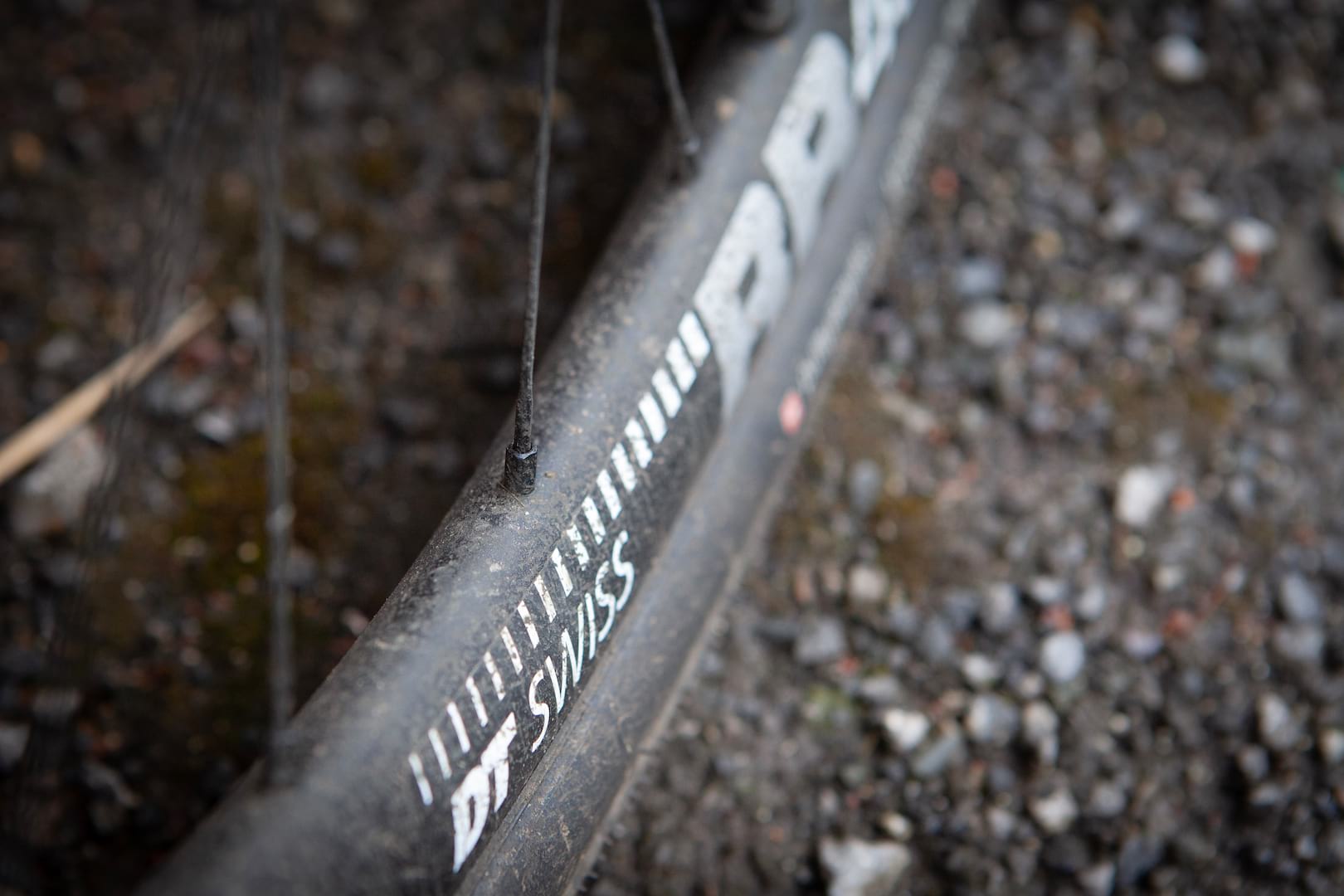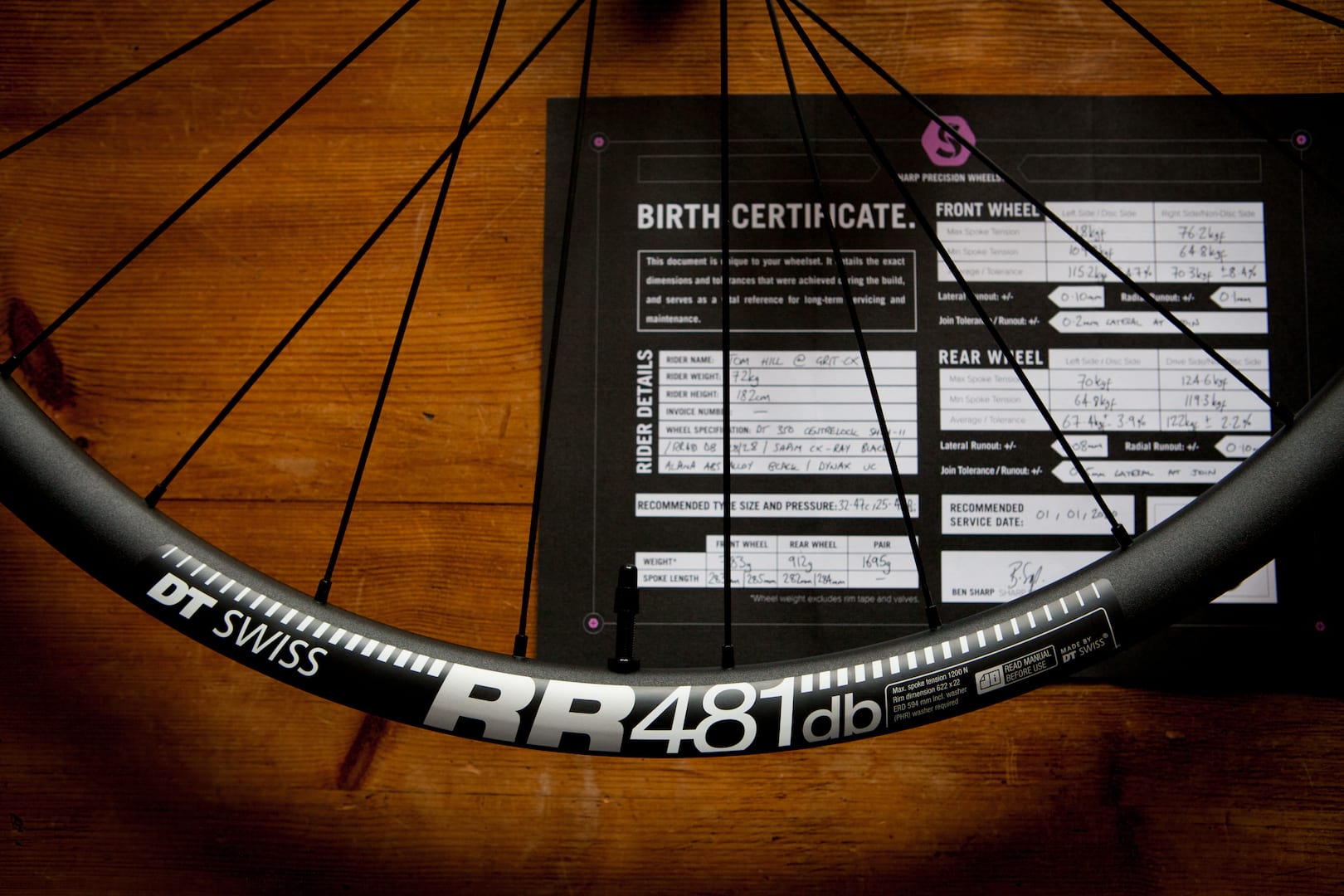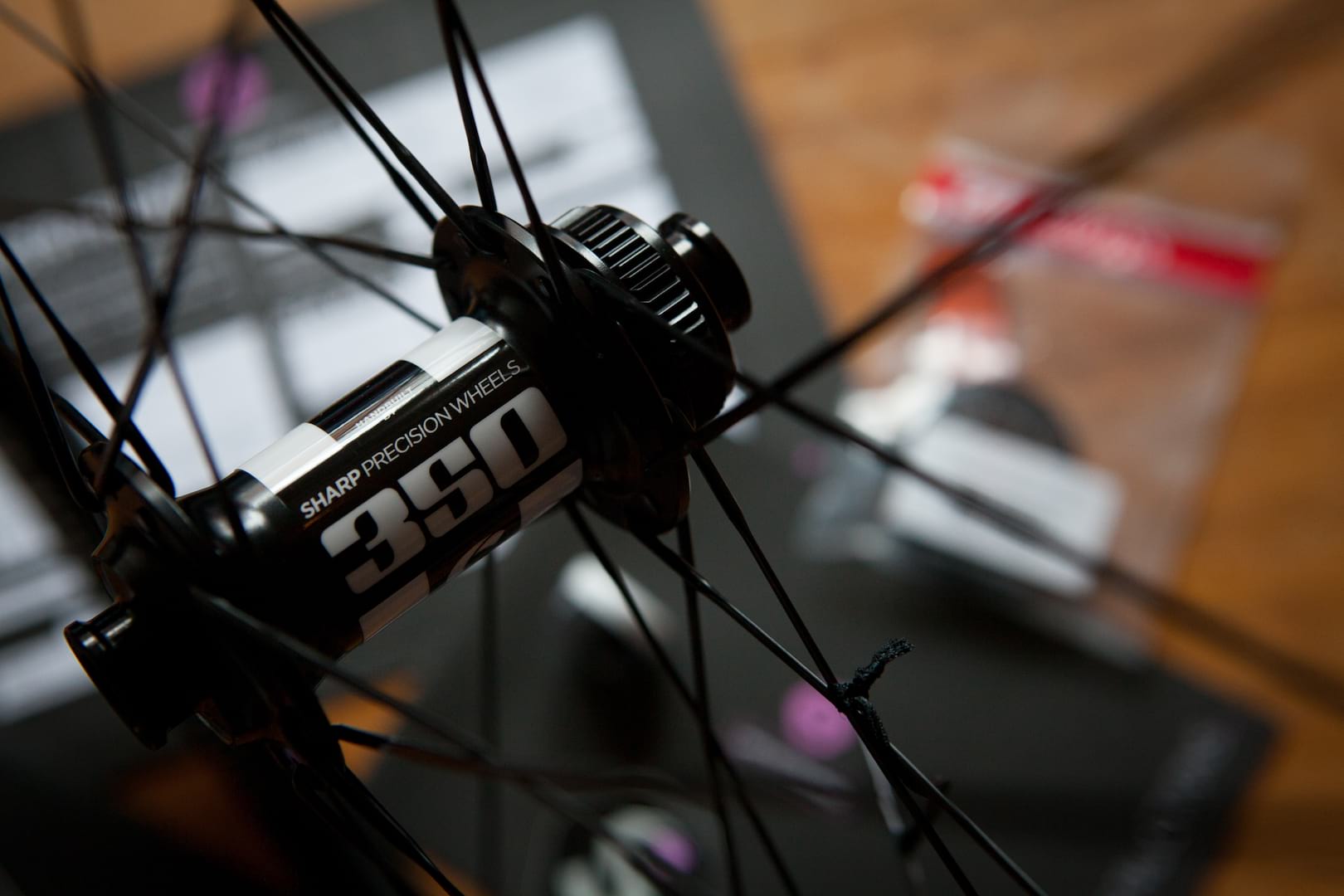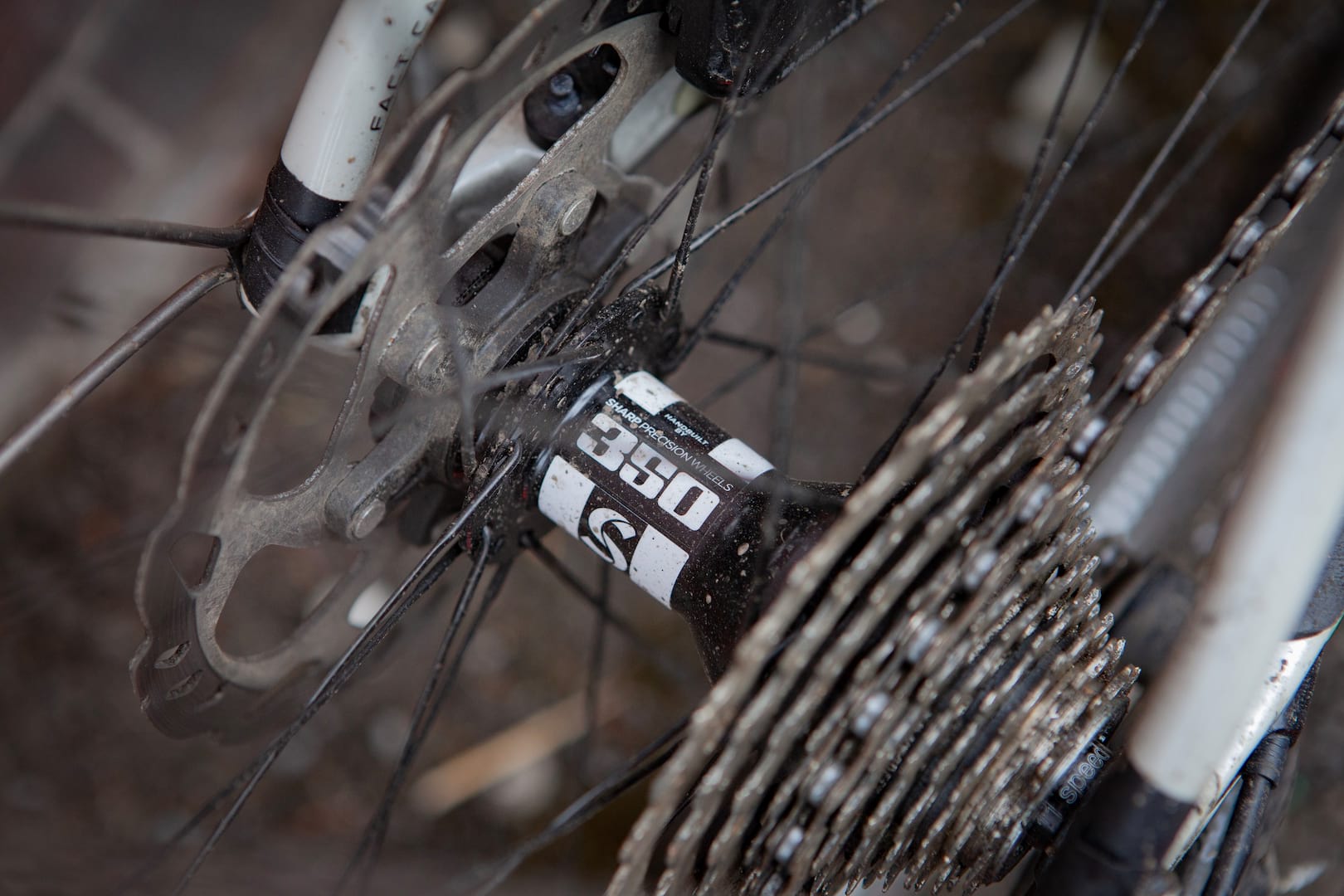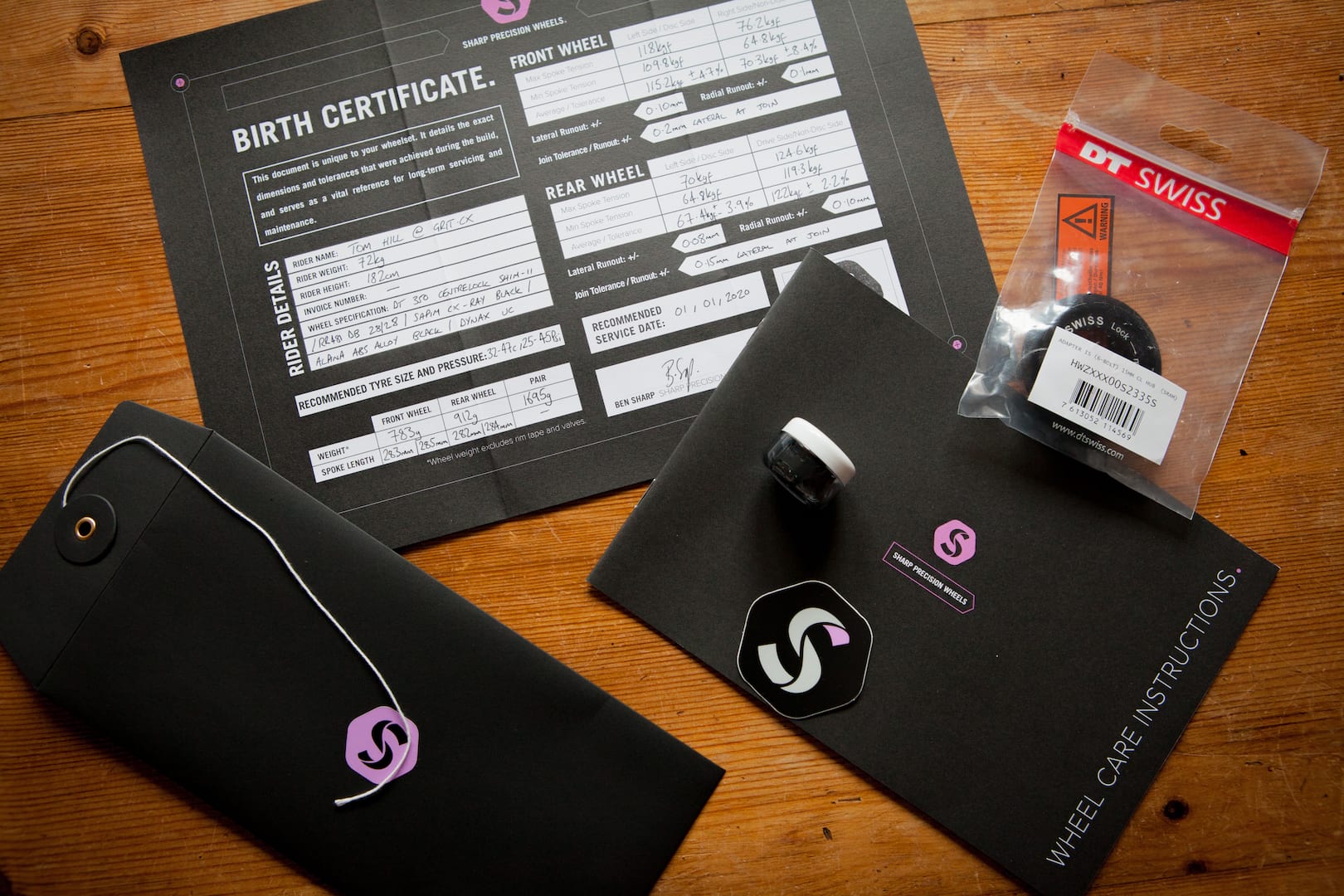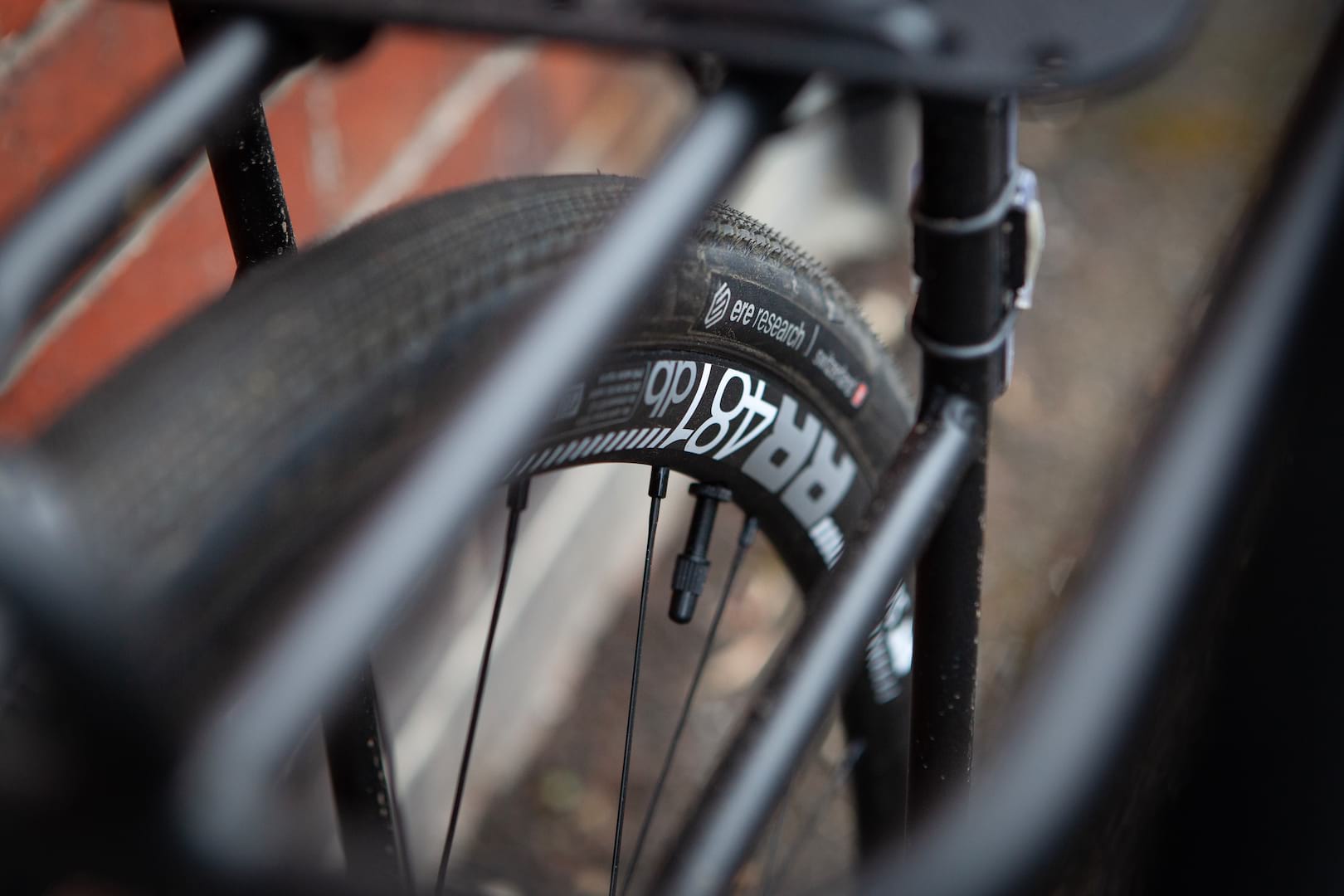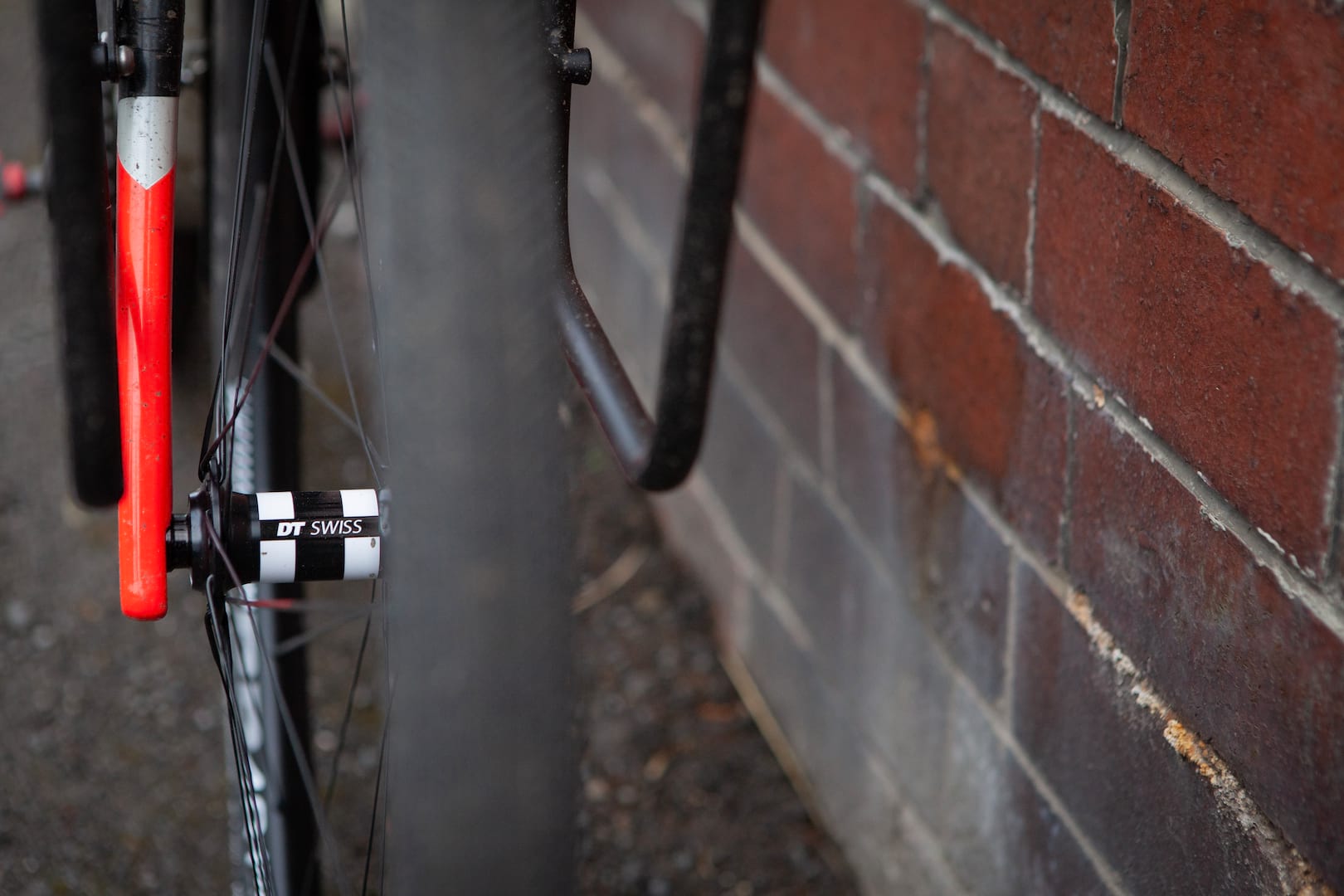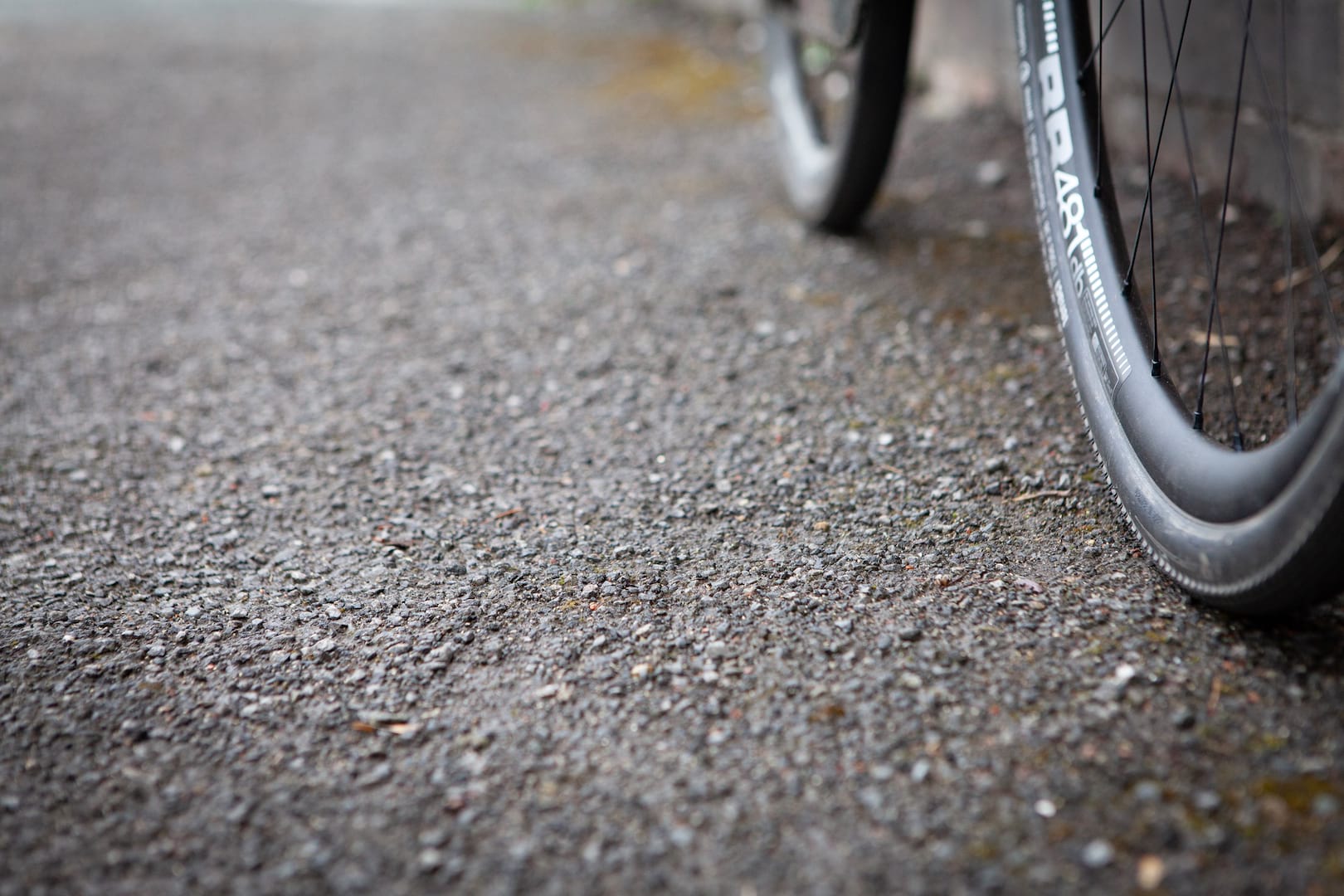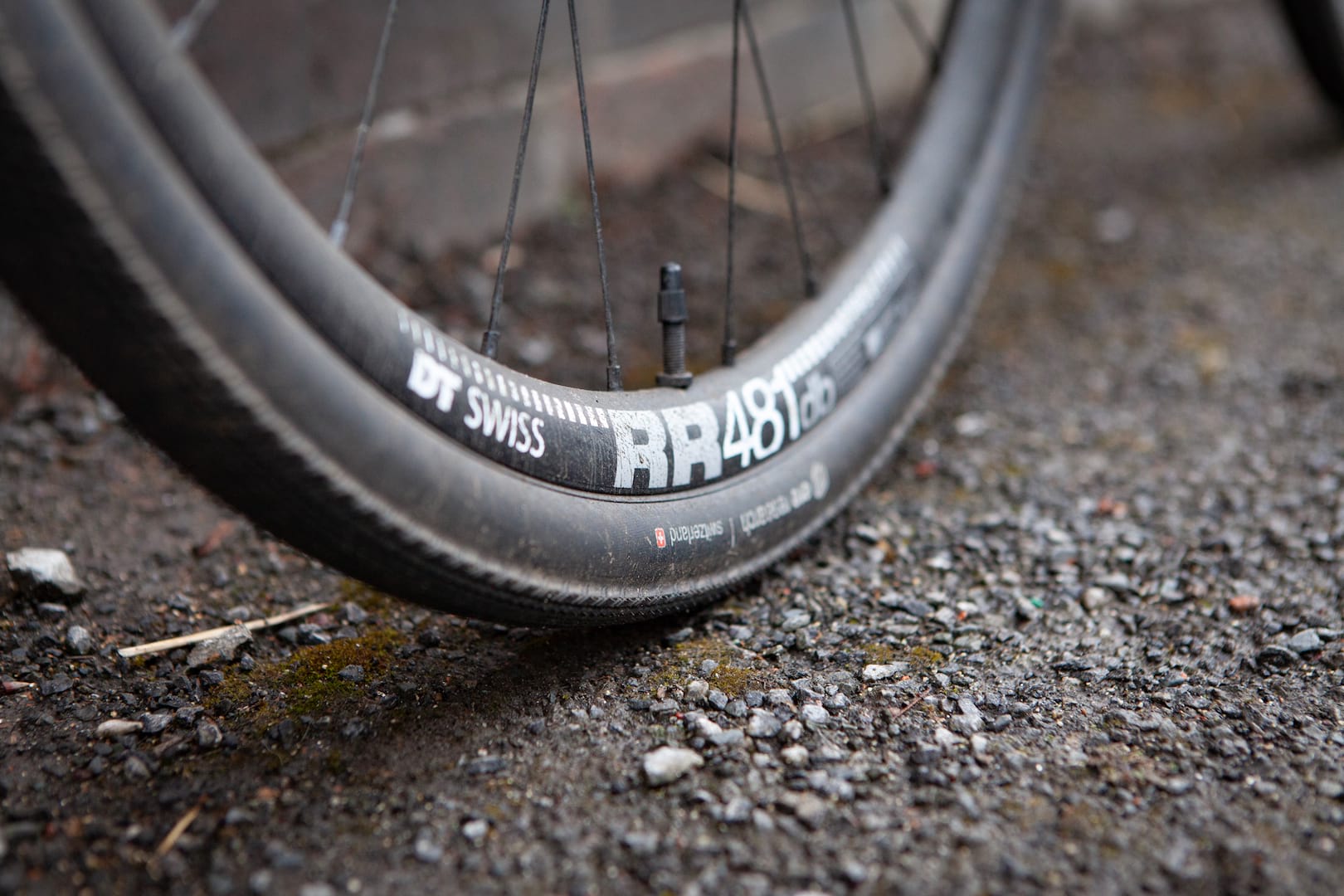- Tested: “The Gravel Wheel”
- From: Sharp Precision Wheels
- Price: £640
It’s an age old question when it comes to wheels: factory or hand built? And even then, not all hand built wheels are the same. They are only as good as the components and builder that threads them together. More often than not, we end up riding off-the-shelf wheels here – either stock build on test bikes, or wheelsets from brands.
Is there still room for custom hand-built wheels in 2019?
Sharp Precision Wheels
It’s now been nearly four months since we received this wheelset from Sharp Precision Wheels. We did an extensive First Look at the time that I won’t repeat again, but here are the basic details:
The wheel:
- Sharp’s recommended “gravel wheel”
- DT Swiss 350 centerlock hubs – 18t ratchet
- 28 spokes, Sapim CX Ray
- DT Swiss RR481 DB rims – 22mm internal width
- Alpina alloy nipples with ABS plastic locking insert and built using anti-corrosion wax
- 1700g with tape and valves
The intended use:
This is a wheel firmly aimed at gravel and rough surface riding, which can also be run on tarmac at road pressures with a 28-32c tyre. According to Ben Sharp – his company is a one-man band – the gravel wheel is “designed to be an all-round gravel wheel which delivers high performance across the board, rather than just focussing on specific trait. It’s an upgrade for people who spent £1000-2500 on their bike and want a quality conscious wheel which is reliable and as wide as possible. To that end, it isn’t the lightest wheel at this price point, but it will “feel” light to ride.”
Our experience
I commented on the level of service from Sharp, but it is worth reiterating. I was hugely impressed with how the wheels arrived. There’s the small touches like the rims being ready taped, with valves fitted, but also the “birth certificate” that Sharp provides with each wheelset, giving the tolerances it was built too. It’s also a very small point, but I liked that the company has gone to the lengths of getting custom stickers for the hubs with a subtle logo – a nice reminder that you a riding something beyond a stock wheelset.
I mounted a few tyres to the wheelset during the test period. Each popped on to the DT Swiss RR481 DB rims with a track pump and minimal effort. A quick note on the 22mm internal width – I think it is about perfect for gravel tyres. I ran everything from 35c up to 45c and would be happy to go a little wider. The rim profile helps you to run slightly lower pressures, and in general seemed to nicely square off tyres, giving the edges good bite.
If you haven’t used centerlock brakes before, they use a splined interface to hold the disc, rather than six holts, and a lock ring to hold the disc on to the splines. Fear not if you have a set of six-bolt discs that you want to mount though. Adapters are readily available (including from Sharp).
The ride
It’s the old testing paradox; to truly test a product you need to use it towards the end of its life. Depending on what you are testing, that could be years down the line and long after the product became obsolete. Wheels often fall into this category – it usually takes several months, if not years before hub bearings need replacing or problems occur.
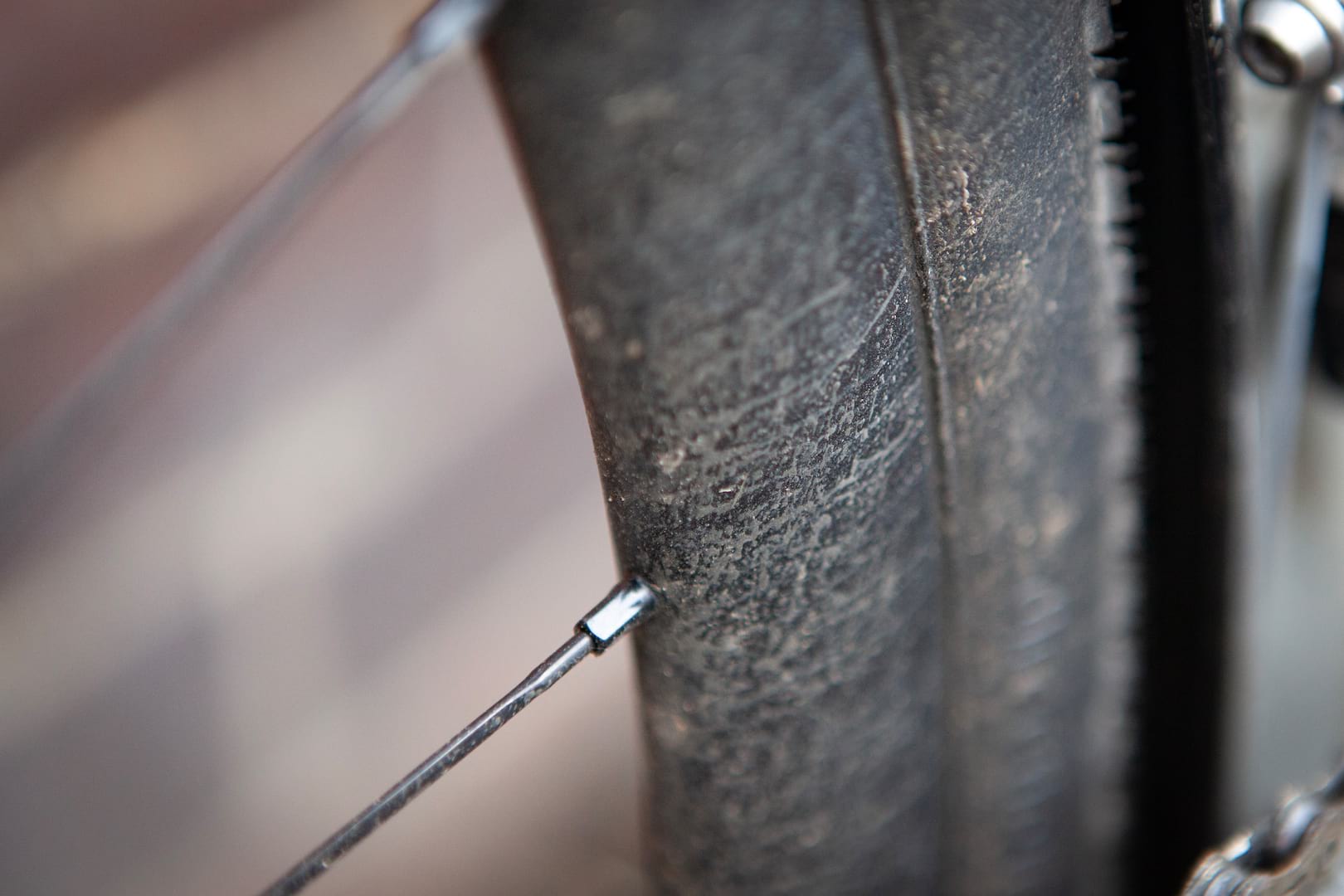
As a counter to this, these Sharp wheels have been pushed into use most days. I fitted them to my commuter bike – meaning that as well as off-road forays, they’ve done a pre-work commute (mostly on rough, potholed, tarmac lanes) on a regular basis. They’ve been used through the worst weather of the year – gritted roads, back to back wet days and sloppy trails. The closest they’ve had to a wash is riding through a few big puddles.
There have been repeated wincing hits as a combination of clumsy riding, potholes hidden in the dark shadows of a pre-dawn morning have threatened to knock the wheels out of true. If there was a perfect environment to test out the longevity of the alloy nipples (which can be prone to corrosion versus brass ones), gritted roads would accelerate the process.
And you know what? As I get the wheels ready to return to Sharp, giving them their first clean, they run as straight and true as they did the day they arrived, and look as good too. I’d expect nothing less, but have certainly experienced worse before.
More than reliable
It’s almost a case of damning with faint praise to say the best thing about a wheel is that it is reliable. Fortunately, there is more to the Sharps than just that. As Sharp admits himself, they really aren’t the lightest. Having said that, they are probably lighter than the stock wheels on your gravel bike, and at no point did they feel heavy work or draggy in any way. The 18t ratchet might be the most reliable option, but it does feel a little slow to engage. It’s the kind of thing that you generally only notice when you think about, but given the option, I’d choose DT Swiss’ 36t upgrade. Luckily you can too, as these are custom wheels.
There’s little to say about the rims other than they have coped with the abuse detailed above, often with luggage strapped to the bike as well. I will say again that I think at least some of this is down to their profile, and the ability to run slightly lower pressures as a result. The comfort that this imparts is also worth pointing out. A couple of PSI when dealing with relatively low volume gravel tyres (compared to a mountain bike tyre, say) can make all the difference. Traction in a loose corner, seated power up a rough climb, or just hands and bum that are happy to do “one more hill” rather than head home.
The wheels seem to tread the balance of stiffness and comfort superbly – once again aided by the ability to run relatively low pressures. I’m a relatively light 75kg in riding kit, but can still often feel a wheel flex and twist during hard efforts. The Sharps resisted this to a large extent, yet never felt overly harsh like carbon wheel sets sometimes can.
A question of value
Sharp’s gravel wheelset costs £640. In a time that you can spend significantly more than that on posh carbon hoops (Sharp offers an Enve gravel wheelset for an eyewatering £2520), that price compares well. Equally, there are many off-the-shelf options for a chunk less.
Will you tell the difference between an off-the-shelf upgrade and the Sharps? Well, here’s a few reasons you might: the specification of the wheels is just about perfectly chosen, things like spoke tension do have a real impact on ride feel. Maybe most importantly, though you’ll know that these are hand built wheels. Don’t underestimate the power of psychology. On the other side, realistically ride differences will be marginal: the lifetime of things like bearings will be no different, ride feel is likely to be princess and the pea levels of improvements.
The real benefits are hopefully longer term though – you have a wheel built that completely meets your needs, you use it more, because it ticks your requirements boxes and does them well. That wheelset then lasts longer because it is well built.
Summary
Sharp’s handbuilt gravel wheels are excellent. Each part is well chosen, and the wheels have been exquisitely put together. If you are replacing the stock wheels from your mid-range gravel bike, they will be a big improvement on what is currently there. One downside to handbuilt wheels is that they are more expensive than similar factory builds, but on balance we think the cost is absolutely justified. There’s no reason that these wheels won’t last a lifetime.

